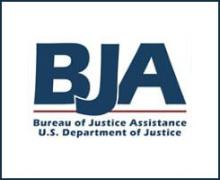Policing
Report on Prospects for Future Research on Policing
A Dynamic Policing Simulation Framework
Celebrating 10 Years of NIJ’s Law Enforcement Advancing Data and Science (LEADS) Scholars Program - 2024 NIJ Research Conference
In 2014, NIJ established the Law Enforcement Advancing Data and Science (LEADS) Scholars Program to support research-minded, mid-career sworn law enforcement officers working to integrate research into agency policy and practice. The LEADS Scholars Program helps participants develop independent research and provides support to identify current evidence on priority issues.
See the YouTube Terms of Service and Google Privacy Policy
Why Getting Inside the "Black Box" Is Important: Examining Treatment Implementation and Outputs in Policing Experiments
Offender Interviews: Implications for Intelligence-Led Policing
The Impact of Hot Spots Policing on Collective Efficacy Findings from a Randomized Field Trial
Using Body Worn Camera Footage to Investigate Predictors of Officer Behavior and the Outcomes of Police-Community Interactions
The Effect of Gunshot Detection Technology on Evidence Collection and Case Clearance in Kansas City, Missouri
Effective Game-Based Training for Police Officer Decision-Making: Linking Missions, Skills, and Virtual Content
Broadband Communications Prioritization and Interoperability Guidance for Law Enforcement
A Shared Component Point Process Model for Urban Policing
Adherence to the police code of silence: Examining changes in recruits’ perceptions during the training academy
Video Data Analysis and Police Body-Worn Camera Footage
The Effects of Hot Spot Policing on Community Experiences and Perceptions in a Time of COVID-19 and Calls for Police Reform
Longitudinal and Cross-sectional Associations between the Dietary Inflammatory Index and Objectively and Subjectively Measured Sleep among Police Officers
Breaking the Code of Silence: The Importance of Control Systems and Empathy Toward Outgroups
De-escalation Training: What Works, Implementation Lessons, and Taking It to Scale; Plenary at the 2023 NIJ Research Conference
Police use of force, while infrequently used, is a tremendous concern to public safety in the United States when officers employ it excessively or inappropriately, causing injury or death and eroding public trust in law enforcement. This plenary from the 2023 NIJ Research Conference describes the Integrating, Communications, Assessment, and Tactics (ICAT) de-escalation training program developed by the Police Executive Research Forum to guide officers in defusing critical incidents.
See the YouTube Terms of Service and Google Privacy Policy
Perceptions of Officer Roles in School Resource Officer Programs
Driving Down Gun Violence, Part 2
Three LEADS Scholars serving in different law enforcement agencies and positions discuss their experiences with identifying and implementing evidence-based interventions to reduce gun violence. NIJ Senior Advisor Dr. Tamara Herold hosts this conversation with guests Police Chief Cecilia Ashe (Milford Delaware Police Department), Chief of Staff Lieutenant Matthew Barter (Manchester, NH Police Department), and Analytical Services Manager Mr. Jason Schiess (Durham, NC Police Department).
Citizens' Reactions to Hot Spots Policing: Impacts on Perceptions of Crime, Disorder, Safety, and Police
Driving Down Gun Violence, Part 1
Three LEADS Scholars serving in different law enforcement agencies and positions discuss their experiences with identifying and implementing evidence-based interventions to reduce gun violence. NIJ Senior Advisor Dr. Tamara Herold hosts this conversation with guests Police Chief Cecilia Ashe (Milford Delaware Police Department), Chief of Staff Lieutenant Matthew Barter (Manchester, NH Police Department), and Analytical Services Manager Mr. Jason Schiess (Durham, NC Police Department).




